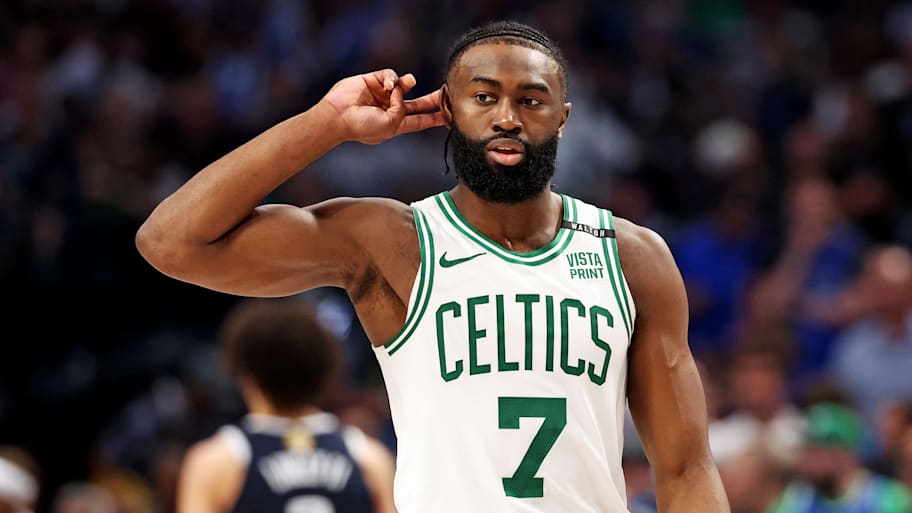
Most players have talked about how the atmosphere of the NBA playoffs is much, much different than the atmosphere of the regular season.
The crowd is loud at the tip, but deafening in the fourth quarter. It can disrupt a visiting team and provide an extra boost of adrenaline and momentum to the home team.
And that can be the difference in the playoffs, when the talent gap is minuscule and every single possession matters.
But of course it goes beyond just the crowd. Familiarity plays a huge role in it. Players at home get to sleep in their own beds, surrounded by family. They don't have to deal with time changes or hotels and flights. They know every inch of their home court, every piece of the backboard and rim. Over the course of a seven-game series, that has the potential to be a massive advantage.
Obviously, it isn't everything. A feisty road team can and often does steal a game from the home team. But, go ahead and ask any player or coach if they'd rather be at home or on the road for a winner-takes-all game.
NBA Playoff Format
Playoff series are best-of-seven and the higher-seeded team is guaranteed four games at home. The first two games are played on the home court of the higher-seeded team, giving said team a chance to take a 2-0 lead, which is a massive advantage in a series.
The next two games (games three and four) are played on the lower-seeded team's court. Game 6 (if necessary) is also played at the home of the lower seed. Meanwhile, games five and seven (if necessary) are played on the higher seed's court.
So, in short, home court advantage gives a team a potential jumpstart to the beginning of the series and the chance to close it out at home if it goes a full seven games.
In the NBA Finals, the team with the higher regular season win total gets home court advantage.
Does Home Court Advantage Lead to Championships?
Yes, but probably not at the rate you think it does.
In NBA history, there have been 90 teams that reached the Finals as a No. 1 seed. There have been 27 instances where both teams competing in the Finals were No. 1 seeds. Those 90 teams are 52-38 in the Finals (57.8%). Of course, removing those No. 1 vs. No. 1 matchups makes the historical outcomes more lopsided.
When a No. 1 seed plays any other seed, the No. 1s are 25-11 in the NBA Finals.
A No. 1 seeded team has won 12 of the last 13 NBA championships. The last non-No. 1 to do so was the 2019 Toronto Raptors.
No. 2 seeds have won 16 championships, No. 3 seeds have won eight, No. 4 and No. 6 seeds have each won one apiece. No. 5, 7 and 8 seeds have yet to win a title. Only No. 1 seeds are above .500 in the NBA Finals.
Against All Odds: The Best Title Run Without Home Court Advantage
The 1995 Houston Rockets have one of the most impressive playoff runs in NBA history.
As the No. 6 seed, Houston faced a 60-win Utah team led by Karl Malone (who finished third in NBA MVP voting) and John Stockton. Hakeem Olajuwon averaged 35 points per game (on 58% shooting) and led the Rockets to a series win.
The second round saw the Rockets square off with Charles Barkley (who finished sixth in NBA MVP voting) and the 59-win Suns. It took seven games, but Olajuwon led Houston to another upset win, scoring 29 points on the road in the winner-take-all finale.
The Western Conference finals was a matchup of MVPs as Olajuwon (who won it in 1994) went up against David Robinson (the 1995 winner) and the 62-win San Antonio Spurs. Olajuwon scored 39+ points in four games, winning the series in six.
Then came the NBA Finals and another huge matchup. The Orlando Magic were the No. 1 seed in the Eastern Conference, finishing with 57 wins. The team was led by Shaquille O'Neal (who finished second in MVP voting), the league's scoring champion. Olajuwon led the way in sweep, winning back-to-back championships.
More NBA on Sports Illustrated
This article was originally published on www.si.com as What Does Home-Court Advantage Mean, Historically, in the NBA Playoffs?.







